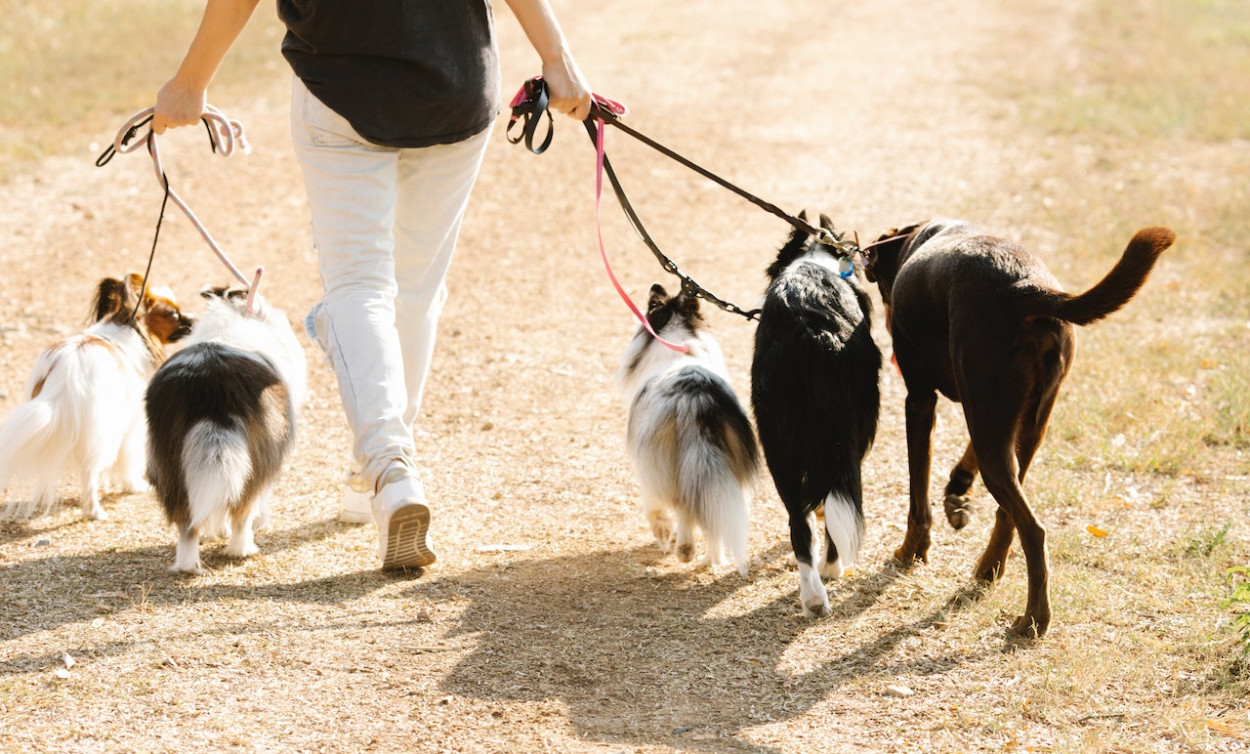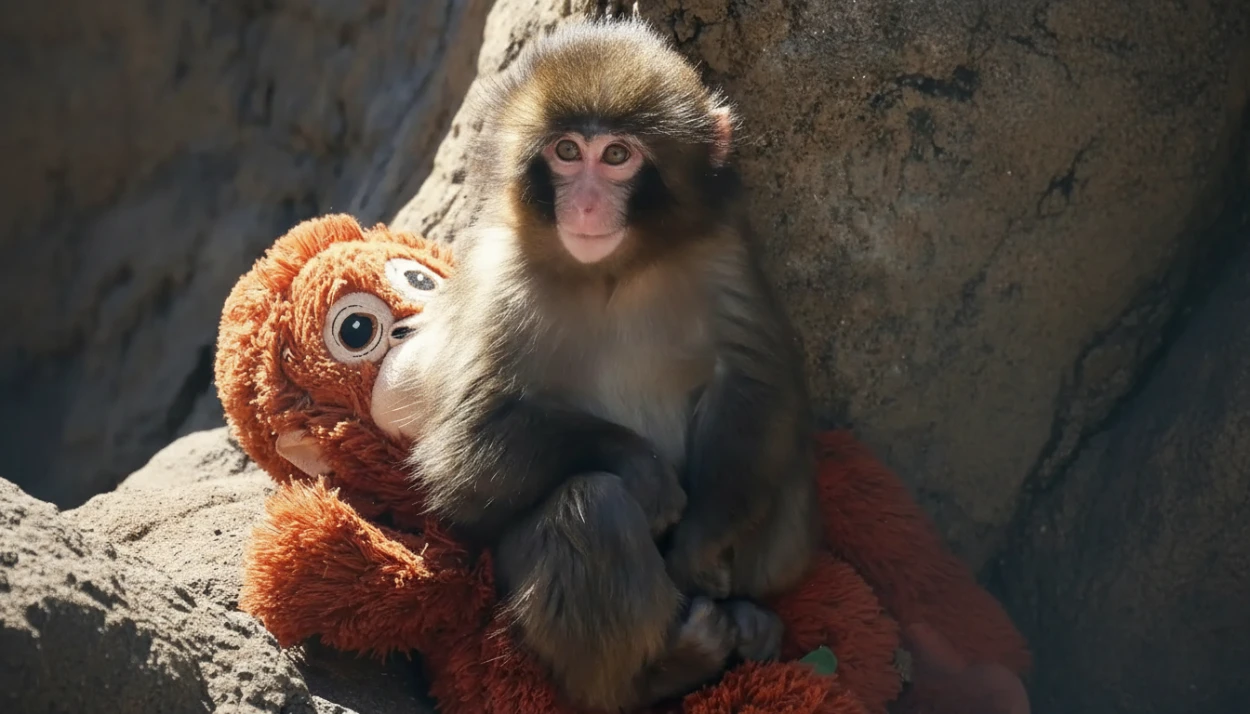When it comes to our beloved furry friends, the topic of intelligence is often a subject of fascination and curiosity. As responsible pet owners, it is crucial to approach this subject with sensitivity and understanding. In this article, we will explore the concept of canine intelligence, debunk myths, and shed light on cognitive challenges that some dogs may face. Let's delve into the world of canine cognition with compassion and empathy.

Understanding Canine Intelligence
Dogs exhibit a diverse range of intelligence, much like humans. Canine intelligence can manifest in different ways, such as problem-solving abilities, emotional intelligence, and social skills. Some dogs may excel in obedience training, while others demonstrate remarkable problem-solving capabilities. It is essential to appreciate that intelligence in dogs is not limited to a single measure or characteristic.
Factors influencing a dog's intelligence include genetics, breed traits, early experiences, and the environment they are raised in. A supportive and stimulating environment can positively impact a dog's cognitive development and overall mental well-being.
Learning Disabilities in Dogs
Just like humans, dogs can also experience learning disabilities. However, it is essential to use appropriate and respectful language when discussing these challenges. Using derogatory terms is not only hurtful but also perpetuates misunderstandings about canine cognitive differences.
Learning disabilities in dogs may arise due to various factors, including neurological issues, trauma, or genetic predisposition. Common signs of learning disabilities include difficulty in learning basic commands, slow response to training, and trouble adapting to new environments.
Common Misconceptions
Before we proceed, let's address the inappropriate use of the term "retarded" when referring to dogs. This term is derogatory and should never be used to describe any living being. Dogs, like humans, have their strengths and weaknesses, and it is essential to appreciate and celebrate their individuality.
As responsible pet owners, we must promote empathy, understanding, and respect for all dogs, regardless of their cognitive abilities. Using compassionate language fosters a positive and inclusive environment for our beloved canine companions.
Canine Cognitive Dysfunction (CCD)
As dogs age, they may experience a condition called Canine Cognitive Dysfunction (CCD), which is similar to Alzheimer's disease in humans. CCD typically affects senior dogs and can result in cognitive decline, memory loss, disorientation, and changes in behavior.
Managing CCD involves creating a safe and stimulating environment for the affected dog. Incorporating regular mental stimulation, providing a consistent routine, and offering plenty of love and support can help improve their quality of life.
Developmental Challenges in Puppies
It is essential to consider the developmental stages of puppies when discussing canine intelligence. Just like human children, puppies go through critical periods of cognitive development. During these stages, proper socialization and positive experiences play a vital role in shaping their cognitive abilities.
As pet owners, it is crucial to recognize the individual pace of each puppy's development. Comparing them to others can lead to misconceptions about their intelligence. Every puppy is unique, and their progress should be assessed with patience and understanding.
Understanding Canine Behavior
Behavior and intelligence are interconnected in dogs. While some dogs may excel in training and obedience, others might showcase intelligence in problem-solving situations. Understanding and appreciating the different forms of intelligence can help us become better pet parents and trainers.
Positive reinforcement training and early socialization are valuable tools for enhancing a dog's cognitive abilities. Building a strong bond with our dogs based on trust and mutual respect enables them to thrive emotionally and intellectually.
Supporting Dogs with Cognitive Challenges
For dogs facing cognitive challenges, a supportive environment is essential. Engaging them in mental exercises, puzzles, and interactive toys can keep their minds active and engaged. Furthermore, breaking training sessions into smaller, achievable steps can help dogs with learning disabilities make progress and gain confidence.
As pet owners, our patience, love, and understanding play a significant role in supporting our dogs through any cognitive difficulties they may experience. By providing them with the necessary resources and emotional support, we can help them lead fulfilling lives.

The Importance of Patience and Love
In dealing with canine intelligence and cognitive differences, patience and love are our most powerful tools. Dogs are incredibly loyal and compassionate beings, and they deserve our understanding and support unconditionally.
Instead of focusing on perceived limitations, we should celebrate our dogs' unique qualities and embrace their individuality. Our bond with our furry companions goes beyond intellect, as they offer us love, comfort, and companionship without judgment.
Famous Dogs with Learning Disabilities
Throughout history, there have been numerous heartwarming stories of dogs with learning disabilities who have overcome challenges and achieved remarkable feats. These stories remind us that each dog is capable of greatness, regardless of their cognitive abilities.
By sharing these inspiring stories, we encourage a more inclusive and accepting perspective towards all dogs, irrespective of their cognitive differences. Every dog deserves respect, love, and a chance to thrive in a caring environment.
Research and Studies on Canine Intelligence
Numerous research studies have explored the fascinating world of canine cognition. Scientists have made significant strides in understanding how dogs think, learn, and communicate. These findings have practical applications for dog owners, trainers, and animal behaviorists.
For instance, research on dog intelligence has shown that they possess a remarkable ability to read human emotions and respond to human cues. Understanding these cognitive abilities can enhance our interactions with our canine companions and strengthen the human-dog bond.
Busting Myths about Canine Intelligence
As with any subject, canine intelligence has its fair share of myths and misconceptions. Let's debunk some of the most common ones to gain a more accurate understanding of our furry friends:
Myth 1: Intelligence is Solely Determined by Breed
It is a widespread misconception that certain dog breeds are inherently smarter than others. While certain breeds may excel in specific tasks due to their genetic traits, intelligence is not limited to breed characteristics alone. Individual dogs within a breed can vary significantly in their cognitive abilities, just like humans.
Myth 2: Only Obedient Dogs are Intelligent
Some people associate intelligence in dogs solely with obedience and training. However, obedience and intelligence are not synonymous. A dog's willingness to obey commands depends on various factors, including their temperament, motivation, and training methods used. Intelligence encompasses problem-solving, adaptability, and emotional understanding, beyond mere obedience.
Myth 3: Dogs with Learning Disabilities are Less Valuable
All dogs, regardless of their cognitive abilities, have inherent value and are worthy of love and care. Dogs with learning disabilities may require extra patience and understanding, but they can still bring immense joy and companionship to their owners. Valuing a dog goes beyond their cognitive capabilities; it's about the unique connection and bond we share with them.
Myth 4: Cognitive Challenges Cannot be Managed
While cognitive challenges in dogs may present certain difficulties, they can often be managed and improved with the right approach. Training strategies and mental stimulation can help dogs with learning disabilities make progress and lead fulfilling lives. Adopting a positive and patient attitude is key to supporting dogs in overcoming cognitive hurdles.
The Human-Dog Bond

The profound bond between humans and dogs goes beyond intelligence. Dogs have an uncanny ability to sense and respond to our emotions, offering us comfort, support, and unconditional love. This bond is a testament to the emotional intelligence and empathy that dogs possess, making them invaluable members of our families.
Embracing Diversity in the Canine World
Just as human society celebrates diversity, we should do the same in the canine world. Embracing the uniqueness of each dog, regardless of their cognitive abilities, promotes a more inclusive and compassionate perspective. By appreciating the qualities that make each dog special, we foster a society that values all living beings.
Conclusion
In conclusion, the concept of dogs being "retarded" is not only inappropriate but also perpetuates harmful stereotypes. Dogs, like humans, possess diverse forms of intelligence and cognitive abilities. As responsible pet owners, it is essential to use respectful language when discussing canine intelligence and cognitive challenges.
Understanding that each dog is unique and has its strengths and weaknesses allows us to support them with love, patience, and empathy. Embracing diversity in the canine world enriches our lives and strengthens our bond with these incredible beings.
Remember, our furry friends offer us immeasurable love and companionship, and they deserve to be treated with kindness and respect, regardless of their cognitive differences.
FAQs (Frequently Asked Questions)
1. Can dogs with learning disabilities lead happy lives?
Absolutely! Dogs with learning disabilities can lead happy and fulfilling lives with the right support and care from their owners. Providing a supportive environment, mental stimulation, and plenty of love can make a significant difference in their well-being.
2. Are there certain breeds more prone to cognitive challenges?
While certain breeds may have a higher risk of specific health conditions, cognitive challenges are not limited to particular breeds. All dogs can face cognitive difficulties, regardless of their breed or mix.
3. How can I tell if my dog has a learning disability?
If you notice your dog struggling with basic training, exhibiting memory issues, or having difficulty adapting to new situations, it may be worth consulting a veterinarian or animal behaviorist for an evaluation.
4. Can training help improve a dog's cognitive abilities?
Yes, training and mental stimulation can positively impact a dog's cognitive abilities. Using positive reinforcement training methods and engaging them in interactive games and puzzles can help keep their minds active and sharp.
5. What should I do if my senior dog shows signs of cognitive decline?
If your senior dog shows signs of cognitive decline, such as disorientation or changes in behavior, consult your veterinarian. They can provide guidance on managing Canine Cognitive Dysfunction and improving your dog's quality of life.
Remember, every dog is a unique individual deserving of love, care, and understanding. Let's celebrate the diversity of the canine world and cherish the special bond we share with our four-legged companions.









